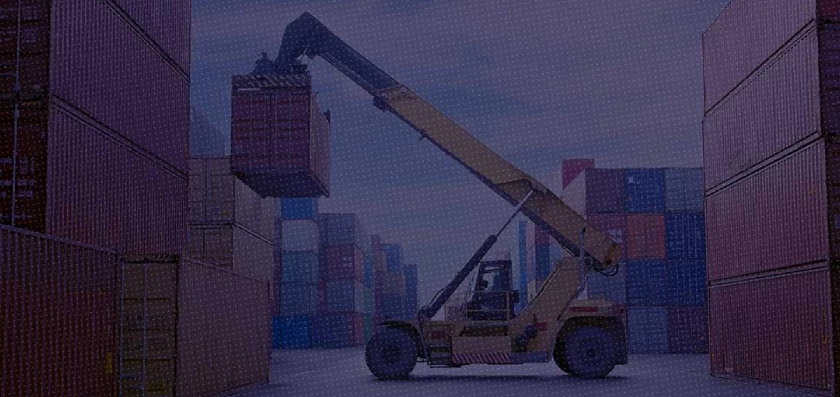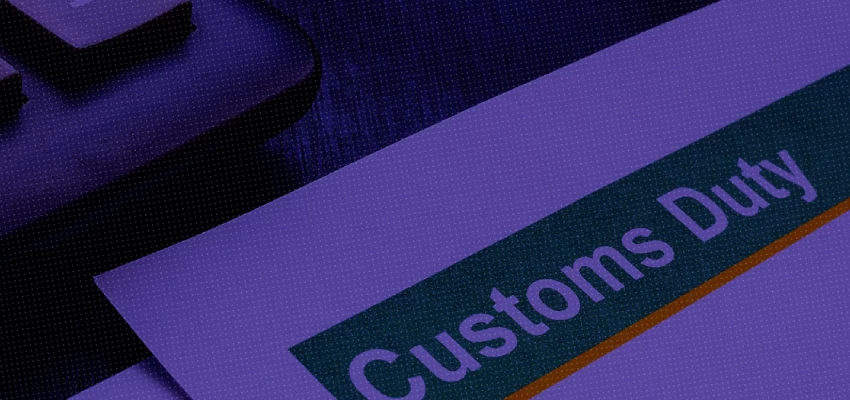From Customs and Foreign Trade Policy (‘FTP’) perspective, the duty exemption/ remission schemes and the ‘Make in India’ program are playing a vital role in globalization of the Indian trade. The objective of the Government should be to further strength these schemes by way of attractive tax exemptions, concessions, etc., complying with the WTO norms for increasing the exports and elevate India to the world's third-largest economy.
After industry had flagged certain concerns, the DGFT has stepped in extending the RoDTEP benefit to Advance Authorisation holders, Export Oriented Units and units in Special Economic Zone, and has relaxed the mandatory QCO compliance for import of inputs under Advance Authorisation and EOU meant for export.
The Interim Budget 2024 as anticipated did not make any significant changes in Customs law. The finance minister has announced that the same customs rates, including import duties, will be retained in the fiscal year 2024-25. Accordingly, no changes have been made in the basic rates of customs duties.
Recent developments
Relaxing mandatory QCO compliance for import of inputs under advance authorisation and by EOU and units in SEZ, meant for export
Import of various inputs into India are subjected to mandatory Quality Control Orders (QCOs) compliance under the BIS. Numerous QCOs on the other hand grant relaxation from its applicability on goods or articles meant for export.
There was a doubt as to whether inputs imported required for use in the manufacture of finished goods exported out of India would require compliance of BIS or not. It is given to understand that customs at various ports have been allowing inputs against Advance Authorization without insisting BIS compliance on the premise that such inputs would be used in export product. Thus, such inputs were/are getting exemption from registration which otherwise require BIS compulsory compliance.
Government vide Notification No. 71/2023 dated 11 March 2024 has now granted exemption from applicability of QCO, to imported inputs used in manufacture of export products.
Whether the relaxation / exemption granted vide Notification dated No. 71/2023 puts to rest the issue or it would open the pandora’s box?
Before analyzing the implication of the notification, we would first see the key observations of the notification:
- The exemption has been granted to Advance Authorization (AA) holders, EOU and SEZs.
- Inputs imported under AA shall be utilized in manufacturing of export product (making normal allowance for wastage) and shall be exported under the same AA.
- Exemption from mandatory QCO to be specifically endorsed on the AA, on request of such AA holder.
- Exemption shall be available only to physical exports and not deemed exports.
- EO period shall be as per para 4.40 of HBP i.e., Export obligation period and its extension, except in case of textiles.
- Exemption shall be further subject to para 2.03 (c) of HBP i.e., the list of Ministries/Departments whose notifications on QCOs, that are exempted for goods to be utilized/consumed in manufacture of export products (Appendix-2Y). The updated Appendix 2Y at present lists Ministry of Steel, Department of Promotion of Industry and Internal Trade, and Ministry of Textiles, for this purpose.
- No DTA clearance of any unutilized inputs/imports or goods manufactured out of such inputs shall be allowed. Unutilized inputs/imports shall mean imports (without compliance with mandatory QCO) which have not been accounted for as per SION/Ad-hoc norms in the product exported under the same AA.
- Such unutilized inputs shall be regularised as follows:
- Destroyed in presence of jurisdictional GST/Customs Authorities who shall certify such destruction, or may be exported;
- Payment of duties/taxes/cesses exempted along with interest on unutilized exempted import plus composition fee equal to 10% of CIF value of such unutilized exempted import and;
- Proof of such payment to be submitted to RA before grant of EODC.
- EOU is required to give an undertaking to the Customs authorities at the time of importation. A copy of such undertaking shall also be submitted to the Development Commissioner. Such inputs or products manufactured therefrom are not to be transferred to Domestic Tariff Area. Exemption is available only for physical exports.
- SEZ is required to give an undertaking to the Development Commissioner of the SEZ unit at the time of importation. Such inputs or products manufactured therefrom are not to be transferred to Domestic Tariff Area. Exemption is available only for physical exports.
The Notification therefore envisages the relaxation to those industries only, whose ministries fall under Appendix-2Y. In other words, the exemption is not applicable to all AA holders.
What will happen to other industries who import the inputs for manufacturing of finished goods against AA meant for exports. Therefore, the authors feel that the attempt to remove the ambiguity granting relaxation from applicability of QCO does not put to rest the issue, rather it could open pandora’s box for other industries.
One interesting aspect as to what could be the basis to cover three Ministries only, leaving all other industries from the exemption category is not clear.
Authors feel that notification seems requiring one to one co-relation between inputs imported vis-a-vis finished goods exported. Further, whether relaxation / exemption would be applicable for the existing AA or for new AA holder may be an issue especially in order to comply with pre-import condition.
Extending RoDTEP benefit to advance authorisation holders, Export Oriented Unit and Special Economic Zone
The objective of RoDTEP is to refund the currently un-refunded duties/taxes/levies, at the Central, State and local level, borne on the exported product, including prior stage cumulative indirect taxes on goods and services used in the production of the exported product and such indirect duties/ taxes/levies in respect of distribution of exported product.
The scheme of RoDTEP was implemented in August 2021. Rates for RoDTEP were notified with effect from 1 January 2022. AA holders, EOU, Special Economic Zones were kept out of the scheme. Notification No. 70/2023 dated 8 March 2024 now extends the RoDTEP benefit to AA holders, EOU, SEZ units.
Key observations of the Notification:
- Ineligible categories mentioned at Sl. Nos. (viii), (x), (xi) and (xii) of Para 4.55 of FTP 2023 have been deleted.
- The RoDTEP benefit has now been granted to AA holders, EOU and SEZ too.
- Rates of rebate / value cap per unit under RoDTEP for exports of products manufactured by Advance Authorisation holders (except Deemed Exports), EOU and SEZ units are notified in Appendix 4RE.
- Benefit is available during the period from 11 March 2024 till 30 September 2024.
- To adhere to the budgetary framework as provided under Para 4.54 of FTP 2023, necessary changes including revisions or deletions, wherever necessary, will be made in Appendix 4R & Appendix 4RE as and when required. Thus, RoDTEP rate revisions in 25 HS Codes have been made in Appendix 4R.
- Extension of RoDTEP to SEZ units will take place on IT integration of SEZs with Customs Automated System (ICEGATE), which is expected to be operational from 1 April 2024. RoDTEP is to be extended from the date of implementation till 30 September 2024 only.
- The benefit of RoDTEP existing currently till 30 June 2024 has been further extended for exports till 30 September 2024.
It is observed that clause (x), which excluded AA holder, DFIA, Special Advance Authorisation holder, has been deleted, thereby covering in the inclusion of RoDTEP benefit. However, Sl. No. (vii) of Para 4.54 seems to extend benefit to AA/EOU/SEZ’s. It, however, does not include DFIA / Special Advance Authorisation holder etc. Thus, Authors feel that in absence of inclusion in Para 4.54, department may raise dispute in granting RoDTEP benefit to DFIA/ Special Advance Authorisation holder. Authors, therefore, feel that such an anomaly may be cured by the DGFT soon or industry may make suitable representation seeking inclusion of these categories as well to avoid unnecessary hassle/ dispute at later point in time.
As envisaged in the scheme, the objective of RoDTEP is to refund the un-refunded duties/taxes/levies, at the Central, State and local level, borne on the exported product. Such duties/ taxes etc. are incurred at equal footing either by exporter operating under AA scheme or otherwise. Thus, creating a separate Appendix for AA holder granting lower RoDTEP rates is desirable, or the same rate notified in Appendix-4R ought to have been granted to all.
Having said that, there is one more aspect of granting RoDTEP to MOOWR unit. Considering the objective of the scheme, i.e. to refund the un-refunded duties/taxes/levies, at the Central, State and local level, borne on the exported product, authors feel that the RoDTEP benefit ought to have been extended even to MOOWR unit as well especially when RoDTEP is not considered as incentive scheme contingent upon export performance.
India-EFTA Trade Deal
India has signed an important trade agreement with the European Free Trade Association (EFTA), which consist of 4 countries - Switzerland, Norway, Iceland and Liechtenstein. The new Free Trade Agreement will promote duty-free import and export between India and those countries along with investments. It will be interesting to see the impact on trade with these countries.
[The authors are Partner and Principal Associate, respectively, in Customs practice at Lakshmikumaran & Sridharan Attorneys, Mumbai]












